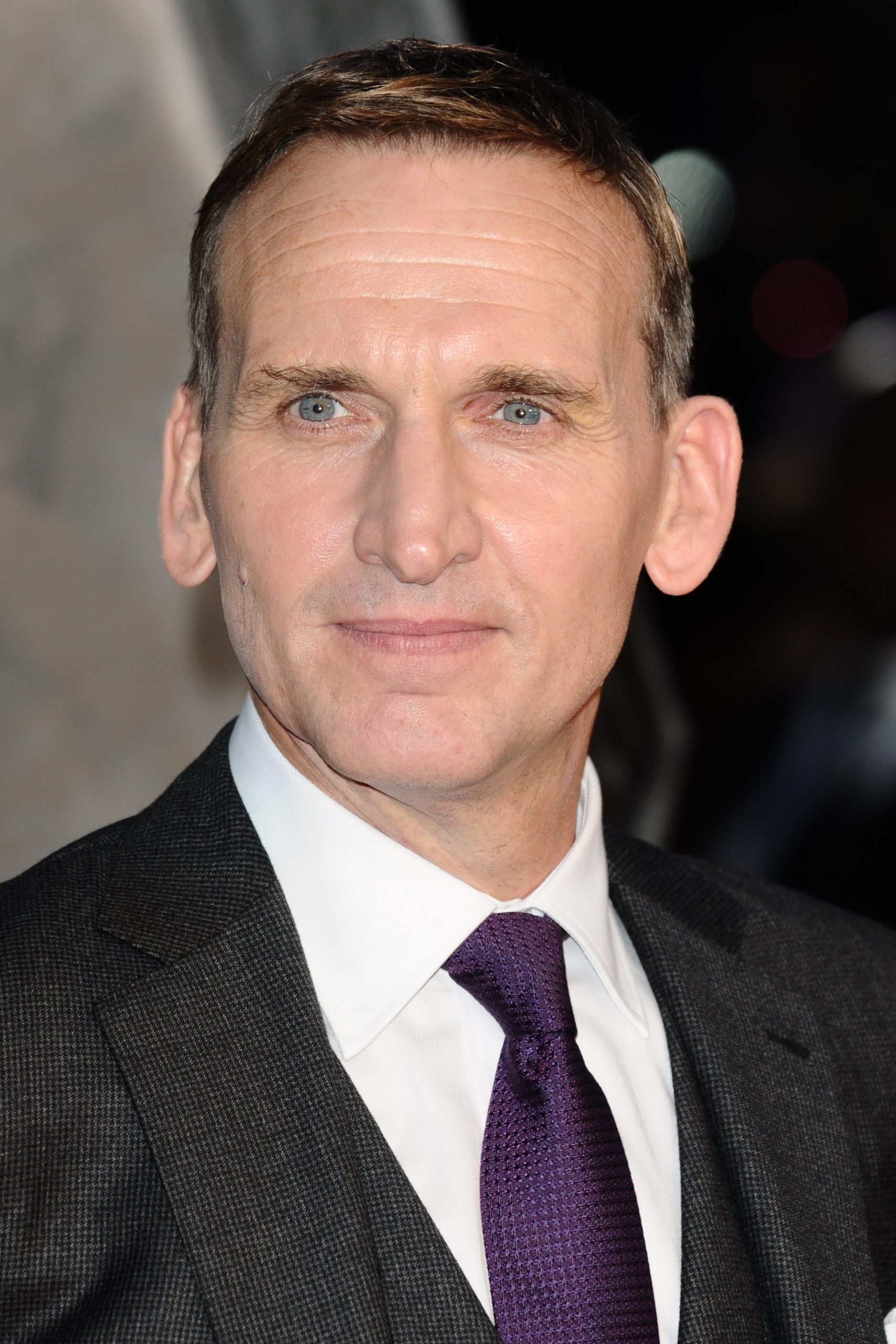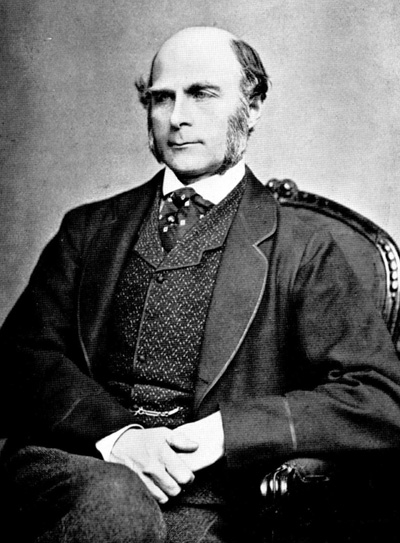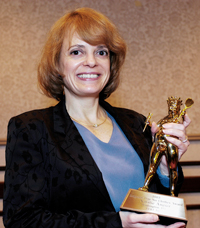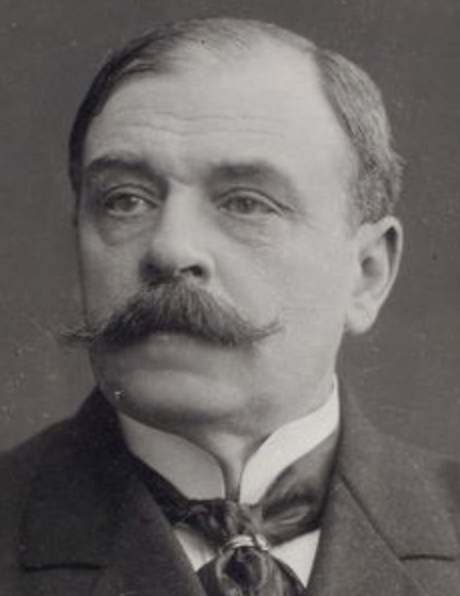February 16
Christopher Eccleston

On this date in 1964, actor Christopher Eccleston was born in Little Hulton, near Lancashire, England, to working-class parents. He studied at the Central School of Speech and Drama and soon found himself performing the works of Shakespeare, Chekhov and Moliere. At 25 he made his professional stage debut in Bristol, performing in “A Streetcar Named Desire.” His role in the film, “Let Him Have It” (1991), brought him public notice. But it was the British TV series, “Cracker” (1993-94), which brought him fame in the UK.
In the movie based on the Thomas Hardy book “Jude” (1996), he played the title role opposite actress Kate Winslet. He played the ninth doctor in “Doctor Who,” winning “most popular actor” from the National Television Awards (2005). He has had numerous roles since on stage, screen and television, mainly in the UK.
After years of publicly declaring himself an atheist, Eccleston told NPR’s Terry Gross in 2016 that the death of his father and the birth of his children made him reconsider and call himself agnostic. Then in 2019 he returned to identifying as an atheist.
He and his wife Mischka, a copywriter 20 years his junior, married in 2011 and divorced in 2015 after having two children.
“I’m an atheist. My mother is very religious, a churchgoer. She would often encourage me to go to church as well, but never forced it upon me, which I thought was quite decent of her. “
“There was no defining moment in which I decided there was no god for me. It was more of a growing process. I do feel that whatever religious beliefs I had as a child were foisted upon me. It’s like when you ask where Grandma went when she died, and you’d be told that she went to heaven. I wouldn’t necessarily view that as a bad thing, but it was stuff like that which I think hindered my intellectual development. Now that I’ve grown, I prefer a different interpretation.”
— Eccleston, "The Heaven and Earth Show," BBC1 (April 3, 2005)
Sir Francis Galton

On this date in 1822, Sir Francis Galton was born in Birmingham, England. The grandson of Erasmus Darwin and cousin of Charles, he was educated in mathematics at Cambridge. An inheritance in 1844 left him free to travel widely. He became a famous explorer, writing several books about his travels in Syria, Egypt and southwest Africa.
In 1863 he became general secretary of the British Association and published a book on weather mapping. His Hereditary Genius was published in 1865. Galton coined the term “eugenics,” defining it very differently from its current meaning. Galton founded a eugenics research fellowship and chair at University College. He also coined the term “nature versus nurture.” His study “Statistical Inquiries into the Efficacy of Prayer” was published in the Aug. 1, 1872, issue of Fortnightly View.
Galton charmingly showed how royalty, the most-prayed-for people in the world, “are literally the shortest lived” of the affluent. Galton observed: “It is a common week-day opinion of the world that praying people are not practical.” He made scholarly contributions to fields as diverse as fingerprinting and psychology. (D. 1911)
“Your book drove away the constraint of my old superstition, as if it had been a nightmare.”
— Galton letter to Charles Darwin, recorded in "Life and Letters of F. Galton" (1914)
Natalie Angier

On this date in 1958, Natalie Angier, Pulitzer Prize-winning science columnist for The New York Times, was born in New York City to a Jewish mother and a father with a Christian Science background. She attended the University of Michigan for two years, then transferred to Barnard College, where she studied English, physics and astronomy and graduated with high honors.
At 22 she became a founding staff reporter for the science magazine Discover. Throughout the 1980s, Angier worked as a senior science writer for Time magazine, as an editor for the women’s business magazine Savvy and as a professor of journalism in a graduate program at New York University. She began writing for The New York Times in 1990 and won a Pulitzer after just ten months on the job for a series of science articles. She became a columnist in 2007 for the Times’ science section.
Her books include Natural Obsessions (1988), about the world of cancer research, The Beauty of the Beastly (1995) and Woman: An Intimate Geography (1999), a National Book Award finalist and best-seller. Woman won a Maggie Award from Planned Parenthood, was nominated for the Samuel Johnson Award (Britain’s largest nonfiction literary prize) and was named one of the best books of the year by the Los Angeles Times, the Chicago Tribune, People magazine, National Public Radio, amazon.com, Publisher’s Weekly, Library Journal and the New York Public Library.
In 2002 she edited The Best American Science and Nature Writing and in 2010 edited The Canon: A Whirligig Tour of the Beautiful Basics of Science. Her writing has appeared in numerous magazines, publications and anthologies. She began serving a five-year term as the Andrew D. White Professor-at-Large at Cornell University in 2007, previously filled by Oliver Sacks, Toni Morrison, Jane Goodall and others who were “distinguished contributors to cultural achievement.”
Angier, a self-proclaimed “lonely atheist,” was a guest on Freethought Radio in 2006. In The New York Times Sunday Magazine (Jan. 14, 2001), Angiers outed herself as an atheist in the article “Confessions of a Lonely Atheist”: “I’m an Atheist. I don’t believe in God, Gods, Godlets or any sort of higher power beyond the universe itself, which seems quite high and powerful enough to me. I don’t believe in life after death, channeled chat rooms with the dead, reincarnation, telekinesis or any miracles but the miracle of life and consciousness, which again strike me as miracles in nearly obscene abundance.”
Angier received an Emperor Has No Clothes Award at the 2003 FFRF national convention. In 1991 she married Rick Weiss, a former science reporter for the Washington Post. They have a daughter, Katherine Weiss Angier, who graduated summa cum laude in 2018 from Princeton with a degree in biology.
“Sure, I’m a soapbox atheist. But [my daughter] doesn’t have to take my word for anything. All she has to do is look around her, every day, to find the bible she needs — in the sky, sun, moon, Mars, leaves, lady bugs, stink bugs, possums, tadpoles, cardinals, the wonderful predatory praying mantises that have gotten really big and fat this year on all the insects this rainy year has brought. Life needs no introduction, explanation or excuse. Life is bigger than myth — except in California.”
— Angier, Emperor Has No Clothes Award acceptance speech at the 2003 national FFRF convention
Octave Mirbeau

On this date in 1848, French playwright and novelist Octave Mirbeau was born in Paris. He was expelled from a Jesuit college at age 15. Mirbeau adopted strong anarchist views and a fondness for art and art criticism. He ghost-wrote at least 10 novels and many under his own name, including Le Calvaire (Calvary, 1886), Le Journal d’une femme de chambre (Diary of a Chambermaid, 1900) and Dingo (1913). In his 1888 novel, L’Abbé Jules, Mirbeau’s main character is a priest who rebels against Catholicism. The novel explores the repressive and abusive role religion plays in human life.
Sébastien Roch, published in 1890, recounts the sexual abuse of a 13-year-old boy by priests that results in the boy’s expulsion from school and the subsequent destruction of his life. Mirbeau’s plays included “Les Mauvais bergers” (The Bad Shepherds, 1897), the acclaimed “Les affaires sont les affaires” (Business is Business, 1904) and “Le Foyer” (Charity, 1908), a comedy accusing the Catholic Church of exploiting young girls. Mirbeau and French actress Alice Regnault wed in London in 1887. Mirbeau is buried in Paris. D. 1917.
“The universe appears to me like an immense, inexorable torture-garden. … Passions, greed, hatred, and lies; social institutions, justice, love, glory, heroism, and religion: these are its monstrous flowers and its hideous instruments of eternal human suffering.”
— from Mirbeau's novel "Le Jardin des supplices" (The Torture Garden), 1899
Elizabeth Olsen

On this date in 1989, actress Elizabeth Chase Olsen was born in Sherman Oaks, Calif., to Jarnette (née Jones) and David Olsen, respectively a former ballet dancer and personal manager and a real estate developer and mortgage banker. Her twin sisters Mary-Kate and Ashley, older by two years, gained fame as child stars via the ABC series “Full House” (1987-1995).
Olsen started acting at age 4. Her parents divorced when she was 7. She appeared in her sisters’ 1994 TV film “How the West Was Fun.” Her debut film role was in “Martha Marcy May Marlene” (2011), earning several award nominations for playing a young woman suffering from delusions after fleeing a cult. She received a BAFTA Rising Star Award nomination and graduated from New York University’s Tisch School of the Arts in 2013.
Olsen next appeared in the horror film “Silent House,” the thriller “Red Lights” and the comedy “Liberal Arts.” She played Edie Parker, novelist Jack Kerouac’s first wife, in the biographical drama “Kill Your Darlings.” She played the leading role in “In Secret,” an adaptation of Émile Zola‘s 1867 novel “Thérèse Raquin.”
Olsen gained worldwide recognition as Wanda Maximoff/Scarlet Witch in the Marvel Cinematic Universe media franchise, appearing in the superhero films “Avengers: Age of Ultron” (2015), “Captain America: Civil War” (2016), “Avengers: Infinity War” (2018), “Avengers: Endgame” (2019) and the TV miniseries “WandaVision” (2021). Her performance in WandaVision garnered her a Primetime Emmy Award nomination. “Doctor Strange in the Multiverse of Madness,” also featuring Wanda Maximoff, was released in 2022 as the 28th film of the Marvel Cinematic Universe.
Olsen and actor Boyd Holbrook were in a relationship from 2011 to 2014. She dated musician Robbie Arnett of the band Milo Greene for three years and then revealed in 2021 that they had married.
PHOTO: Olsen at the 2012 Critics’ Choice Movie Awards in Hollywood, Calif.; photo by s_bukley/Shutterstock.com.
“When I was 13, I told my parents I didn’t believe in God anymore. I wanted to be an atheist because I believed that religion should be about community and having a place to go in prayer, not something that should determine women’s freedoms.”
— Interview, Dazed magazine (Sept. 2, 2013)
